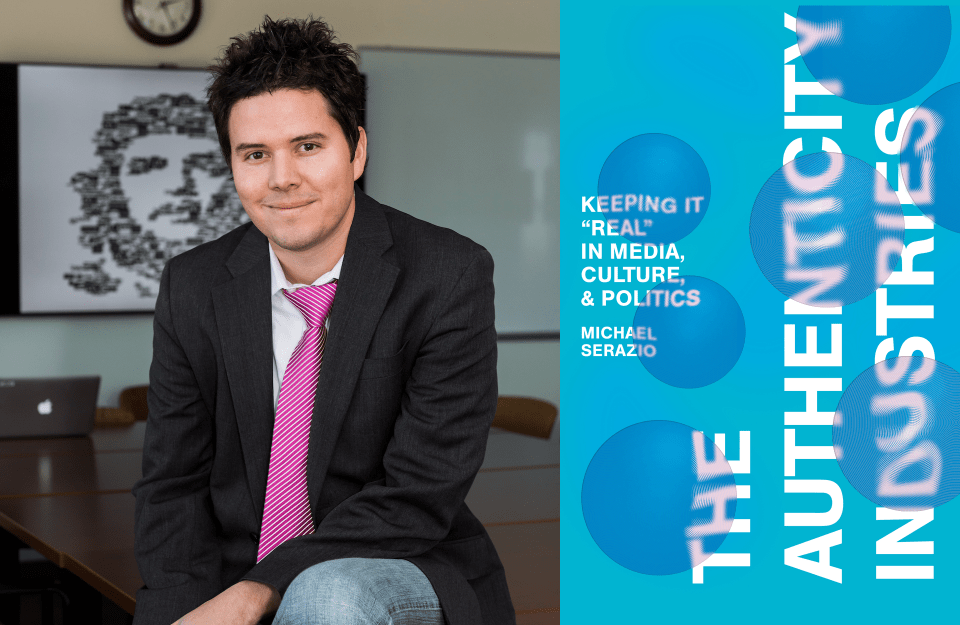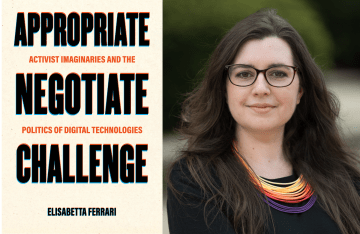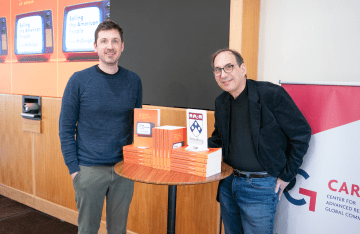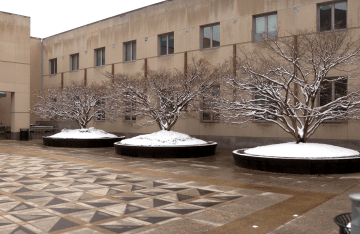The Authenticity Industries: Q&A with Michael Serazio (Ph.D. ‘10)
In his new book, Serazio explores America’s fixation on being “real” and the industries dedicated to the careful cultivation of authenticity.

Michael Serazio, Ph.D.
“A few decades into the twenty-first century, America obsesses over authenticity,” begins Annenberg alum Michael Serazio’s (Ph.D. ‘10) new book, The Authenticity Industries: Keeping it "Real" in Media, Culture, and Politics.
Serazio, an associate professor of Communication at Boston College, breaks down this obsession, dissecting it with the help of those whose jobs are dedicated to cultivating authenticity — making the calculated and crafted appear natural and effortless — reality TV casting directors, social media influencers, political consultants, and others in the so-called “authenticity industries.”
We recently spoke to Serazio about the book, which is now available from Stanford University Press.
Why is the U.S. in particular so obsessed with authenticity?
The pursuit of authenticity is an effort to reaffirm what remains human within us – against countervailing forces of disorienting social dislocation, rampant marketplace logic, and inexorable technological advance. That makes it a kind of religion of self-discovery and moral framework for a secular society.
It's also a fundamentally nostalgic reflex: The more staged, manipulated, and unreal our mediated culture feels like it becomes, the greater the yearning for what seems to have been lost along the way.
Those pressures and yearnings are probably not unique to the U.S., but it happened to be the geographic context that I situated the book's inquiry, being based here.
How does “authenticity” relate to democracy? Is there a difference from crafting a persona for a musician that is “real” and “relatable” and one for a politician?
Every campaign season, political discourse obsesses over authenticity: It's emblematic of the cliched, "Would you have a beer with the candidate?" This, by the way, is a silly thing to contemplate, because you’ll never have a beer with the candidate.
As a concept, it's typically a proxy for anxieties about political compromise, donor influence, or focus-grouped platitudes.
But crafting a supposedly "authentic" persona for a politician is not dependent upon policy substance — or even political honesty. Rather, it's about projecting a candidate who seems true to some inner self in a way that reminds voters of themselves as well.
And that's the same identification-production strategy that the authenticity industries use to make not just pop music artists — but also reality TV stars and influencers — seem relatable and real in other media domains.
As you researched this book, did anything surprise you?
Two things, broadly. First, more philosophically, I couldn’t really ever get to the bottom of whether “selling out” is still a diss or cultural stigma these days or whether that’s the vestige of some 1990s Gen-X gripe.
Personally, I find the rise of influencers utterly bonkers, but I think I’m clinging to a dated notion that “friendship” ought not be a space for product placement inventory.
Second, more methodologically: I was pretty stoked that I could ask the same set of interview questions to a wildly different set of interviewees – from Jersey Shore’s casting director to Facebook’s director of monetization to Bruce Springsteen’s longtime manager to Starbucks’s VP of global creative to Donald Trump’s press secretary to Howard Dean’s 2004 campaign manager and they would all have much to say, in similar terms, despite having little ostensibly in common with each other. That, to me, shows how authenticity threads itself constantly, obsessively, throughout our media, cultural, and political life.
Is there an anecdote in the book that encompasses the reality behind the authenticity industries?
Perhaps less of an anecdote as much as a pattern of anecdotes: Across domains, authenticity has an aesthetic bias at a surface level — even as it indexes deeper, meaningful values contra capitalism or technology.
It’s “curated imperfection” or “aspirational ordinariness,” as others have called it. It doesn’t “look” like it’s trying to be authentic, which makes for self-effacing media work; puppetry that effaces its own fingerprints.
Much of this derives from a myth that online content that appears amateurish (i.e., low-production values) is more authentic and trustworthy. As hobbyist creators on YouTube professionalized, they’d often leave in their mistakes to maintain that pretense.
When Instagram started, the official company feed insistently spotlighted only amateur pics to encourage user output — which would have diminished if it looked like a space for elite photographers. TikTok’s vertical orientation contrasts the horizontal norm of (professional) TV and movie content, as does its sweatpants-clad, slapdash substance.
And as that influencer industry took off — and, more so, as nano-influencers ascended — their amateur aesthetic became precisely the value that corporations sought: people who looked relatable and could serve as “innocent” vessels for the sell.
Pandemic conditions then necessitated remote and low-budget media-making e.g., sparking TikTok’s growth, which further entrenched these aesthetic expectations.
As AI technologies like ChatGPT improve, how will it complicate the idea of “authenticity” and “realness”?
I suspect it’s more than just ChatGPT — it’s the online disinformation that’s plagued the past decade of news and politics and the digital deepfakes that are coming for all of us.
In the run up to the 2020 election, one tech non-profit launched the emblematically named “Reality Defender” digital scanning tool to detect and expose such meddling.
There seems to be efforts like that on a technical level — say, advanced watermarking — to prove the authenticity of information, visual or otherwise. But philosophically, artificial intelligence is forcing us to rethink our assumptions about human creativity, autonomy, and value.
The Luddites of the 19th century surely thought those machine-generated textiles were “inauthentic.” They, of course, famously rebelled, but the machines won in the end and we adjusted our expectations about “realness” accordingly. That, I think (fear?), might be the ultimate success of today’s authenticity industries as well. I mean, I had ChatGPT write out these answers for me and they seemed “real” enough. Maybe?



